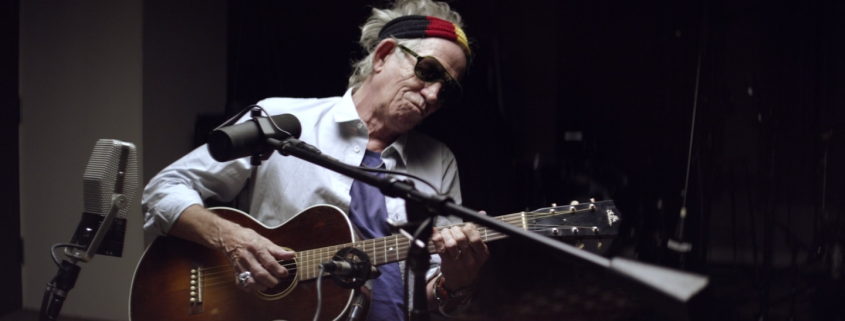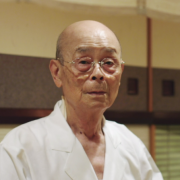Mr. Keith Richards: I’ll Have What He’s Having
In terms of content, Netflix can certainly come across as an interesting case study. A strong and consistent influx of what is, essentially, mainstream drab at times finds itself broken up by incredible cinematic gems, and when you least expect it as well. Such relief and redemption comes with the newly uploaded Keith Richards bio-doc, an incredibly charming journey through decades of rock ’n’ roll madness and bare knuckle blues. Picking up wisdom and nostalgia along the way, we brush off the dust, swipe through the cigarette smoke, and expose the endless grace, compassion, and emotional empathy that made him a rock god, and bona fide guitar idol.
And the most powerful moment comes only moments into the film.
Keith Richards: Under the Influence opens empathically with ground-up shots of trees bathed in sunlight, accompanied by booming waves of orchestral ambience. It seems hardly fitting for the man under the lens. The camera follows behind Richards roaming the woods.
“Life’s a funny thing, you know. I always thought thirty was about it. Beyond that would be horrible to be alive…until I got to be thirty-one. Then it wasn’t so shabby, you know, ‘I’ll hang in a while’. As you go along, you realize this whole concept of ‘growing up’ is that you’re not done growing up until you’re six feet under. You’re never grown up”.
Cue bone-shaking blues riff while that thought digests.
The notion sticks with a viewer through the rest of the film, adjusting the lens with which we analyze Keith’s layers. His fingers are absolutely haggard, knobby even. Bony, like some 80s spook-flick stereotype. His face famously sags under the weight of decades of drugs, alcohol and nicotine. His voice quivers with age, especially when he sings.
But when the Stones man musters up his infamous slippery grin and brittle laugh to boot, the man glows youth like you’ve never seen. As we move through the film—60s Chicago, New York, London—we slowly understand how such a philosophy is what brought Keith from lower-class, post-War England to the pinnacle of rock ’n’ roll fame.
Never growing up means constantly learning. Consider how strange it must have been for a young man in 50s/60s England to be inspired by the American Delta blues. Buddy Guy? Chuck Berry? Howlin’ Wolf, Bo Diddly, Muddy Waters? It was all quite literally a world away. The Stones made a name for themselves by speeding up these traditional blues roots to fit a modern rhythm, starting a career that would sail Richards through countless guitars, artist inspirations, taking up the piano, the mandolin, and dabbling in Reggae, Country music, and anything else that simply tickled his fancy. It’s what made his music so groundbreaking.
Why is it so relevant? It’s a hair’s breadth from the essence of the PR/Comms scene. It’s a scene so human that it parallels with a fundamental facet of life: that success is dependent on always being open to change, innovation, bringing in foreign concepts, and testing the legitimacy of current orthodoxy every now and then.
In other words, success is about staying young.
We survive by shaping the way clients are perceived, but we triumph by being adaptable, to constantly shape ourselves, and do it better, faster, and all with deeper insight.
As painfully cliché as it might sound, watching Keith decode a blues riff and thoughtfully navigate a guitar’s slender neck reminds me of the conceptual ins and outs of the Comms landscape. The colliding sectors and meshing industries is no different than notes in a chord and chords in a song, or the way a fresh approach inspires and motivates listeners or constituencies. And like Keith says, “music is something that binds people together, […] it’s undefinable and nobody’s got the answer to it. But it’s great fun exploring”.











